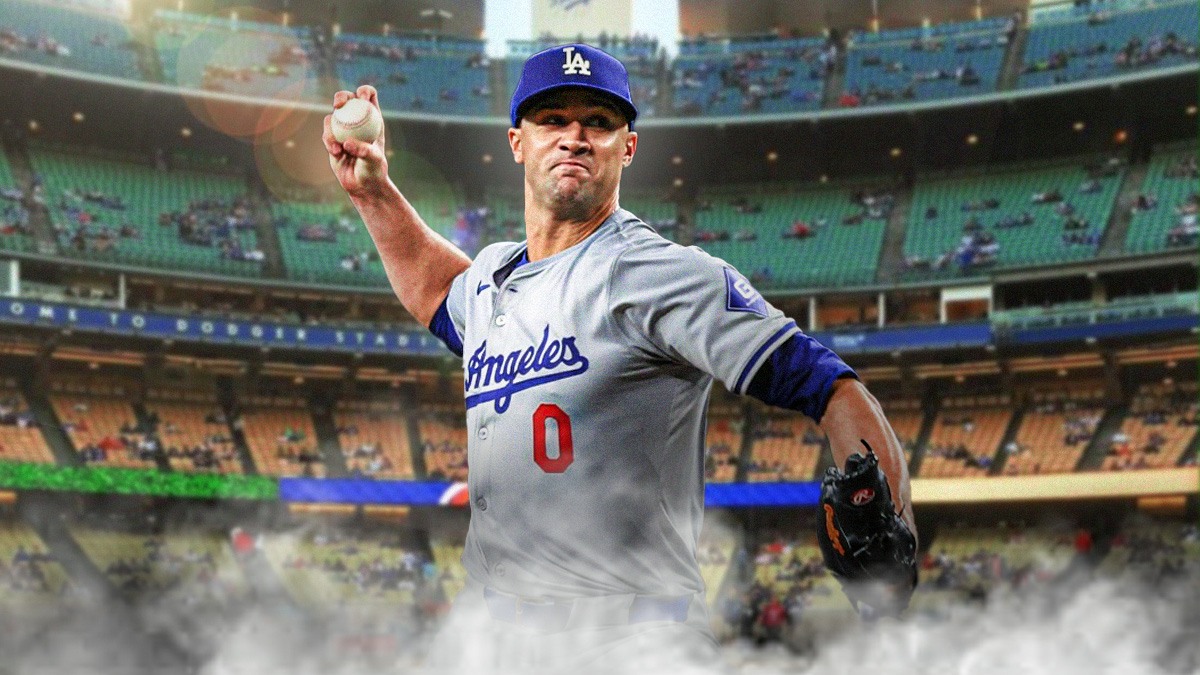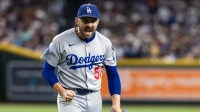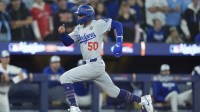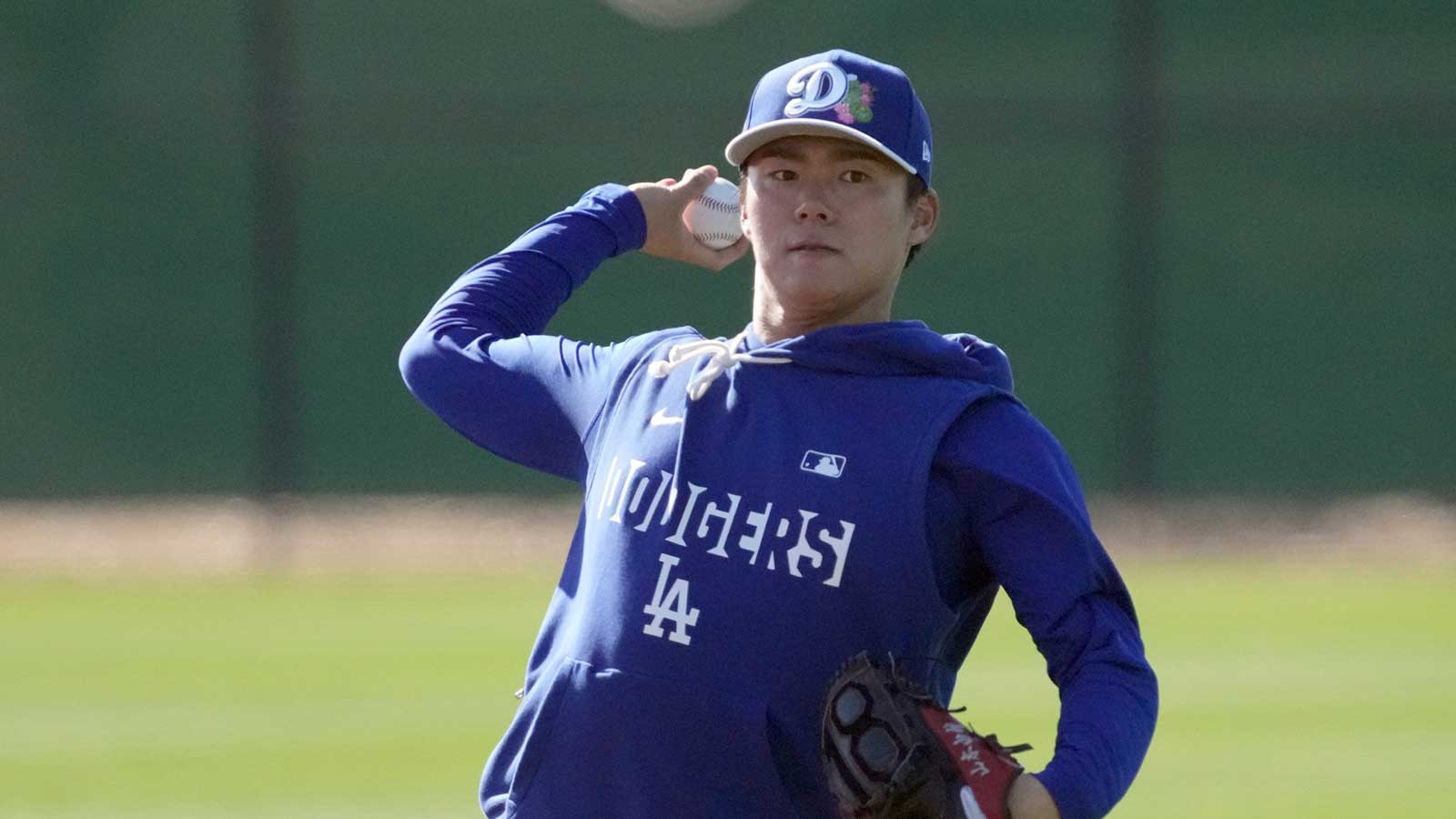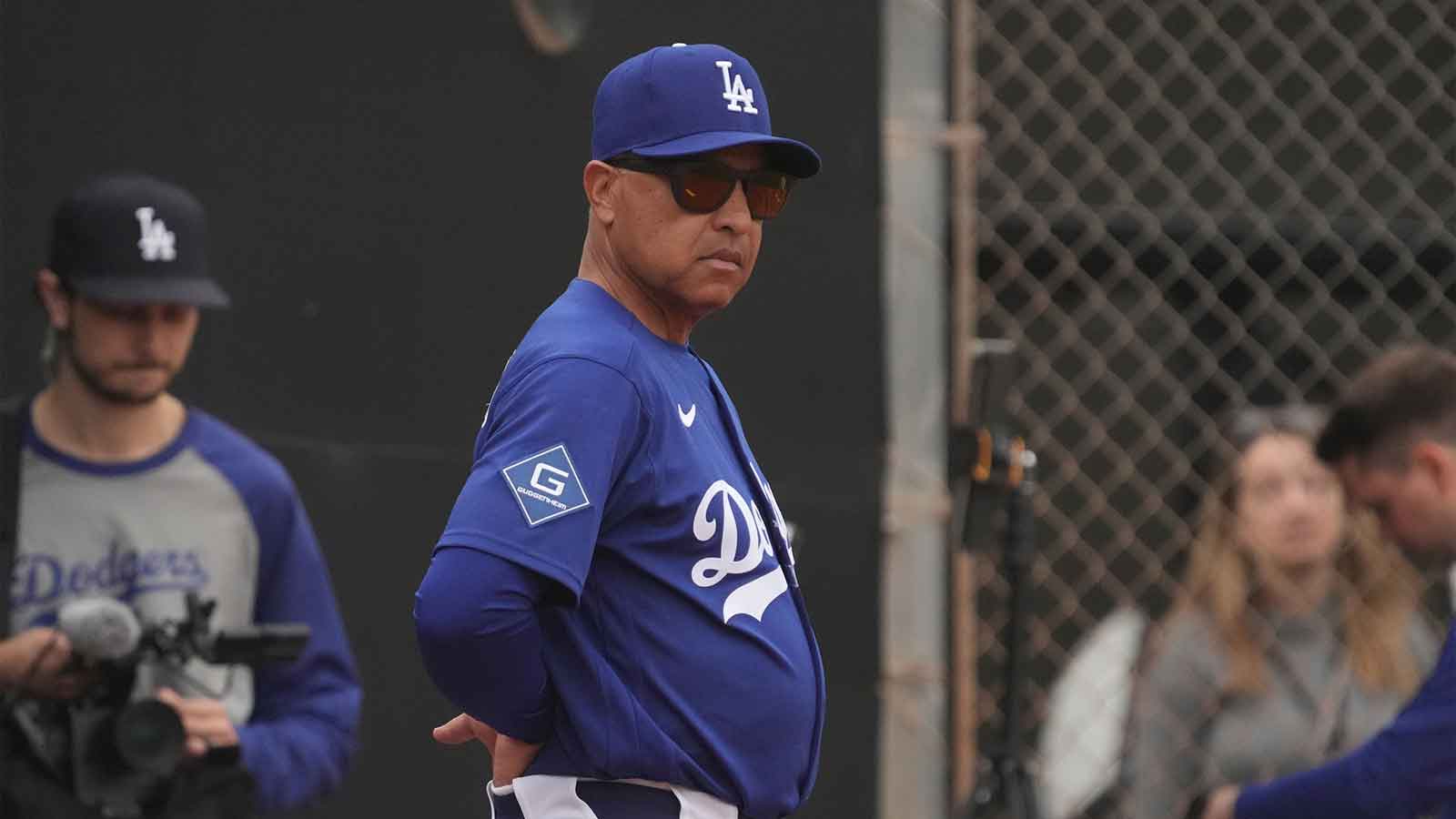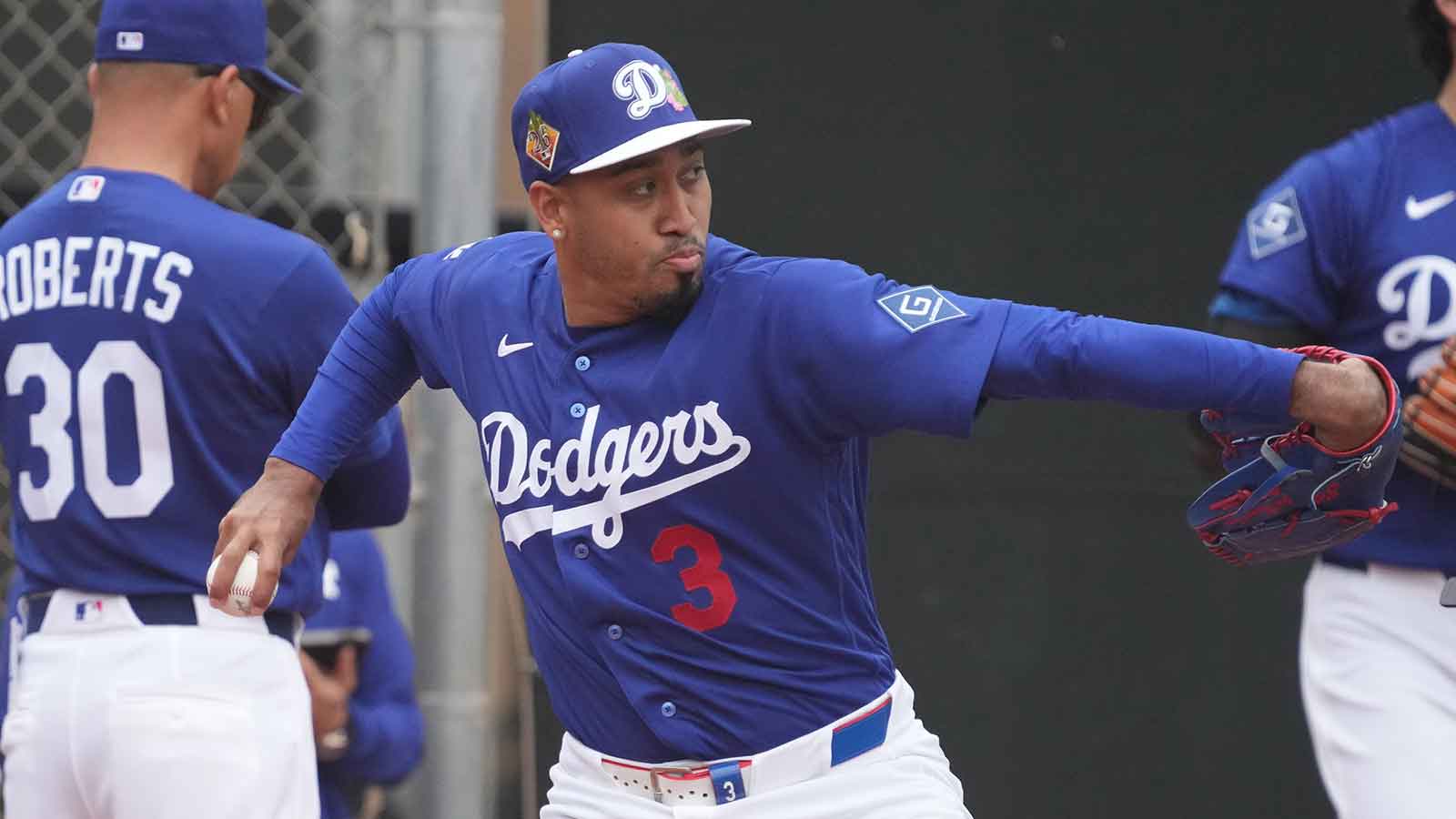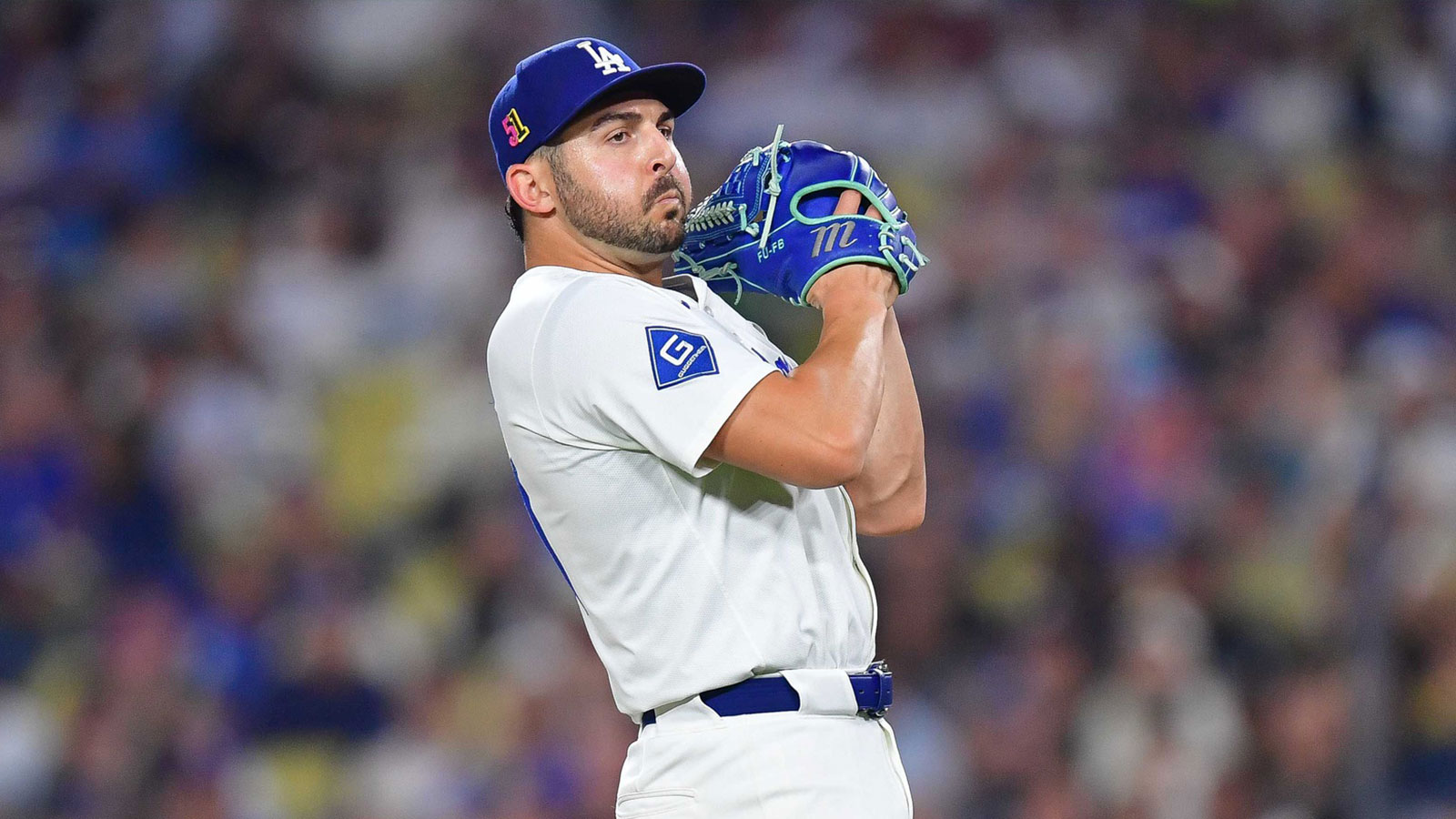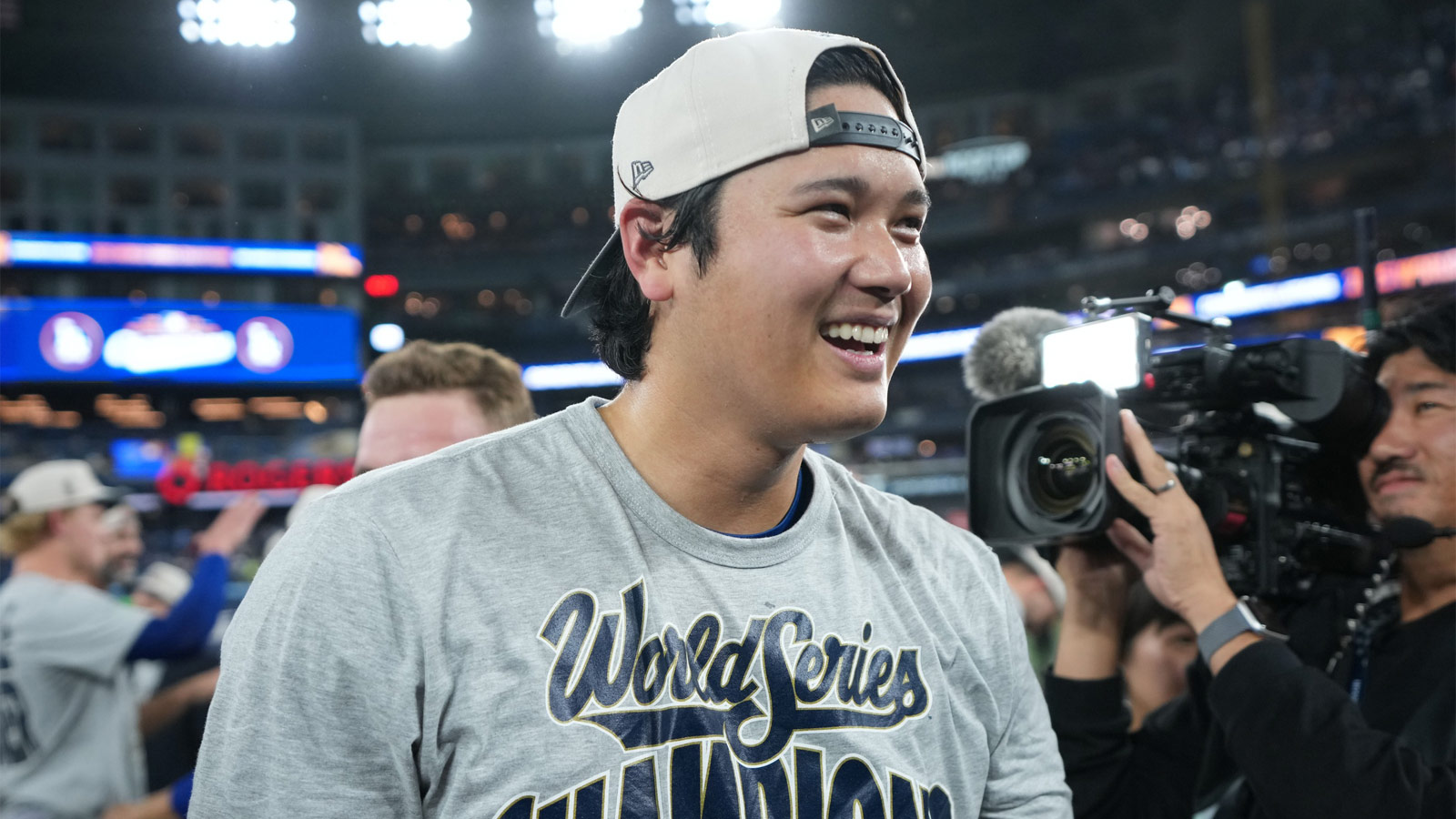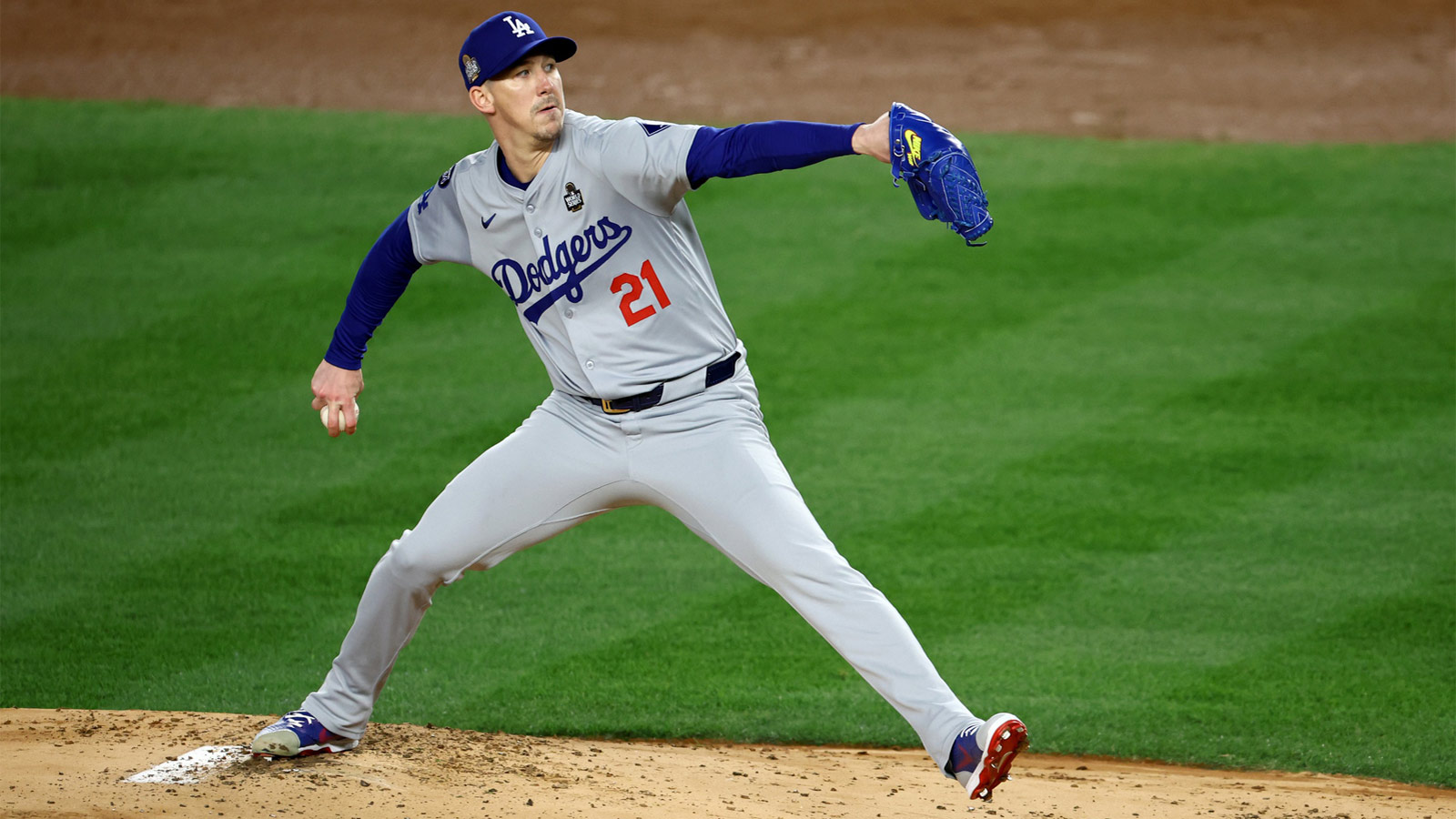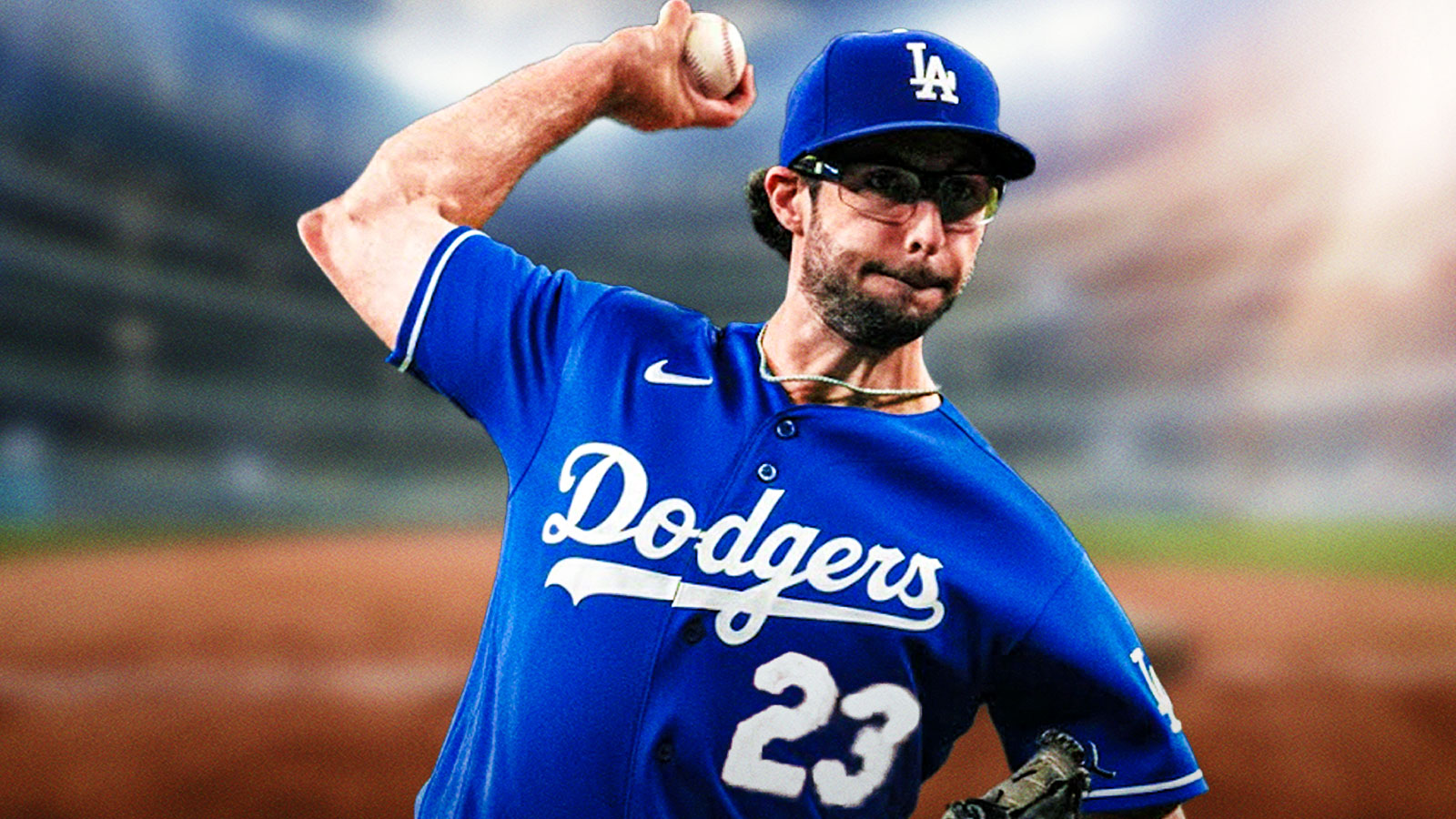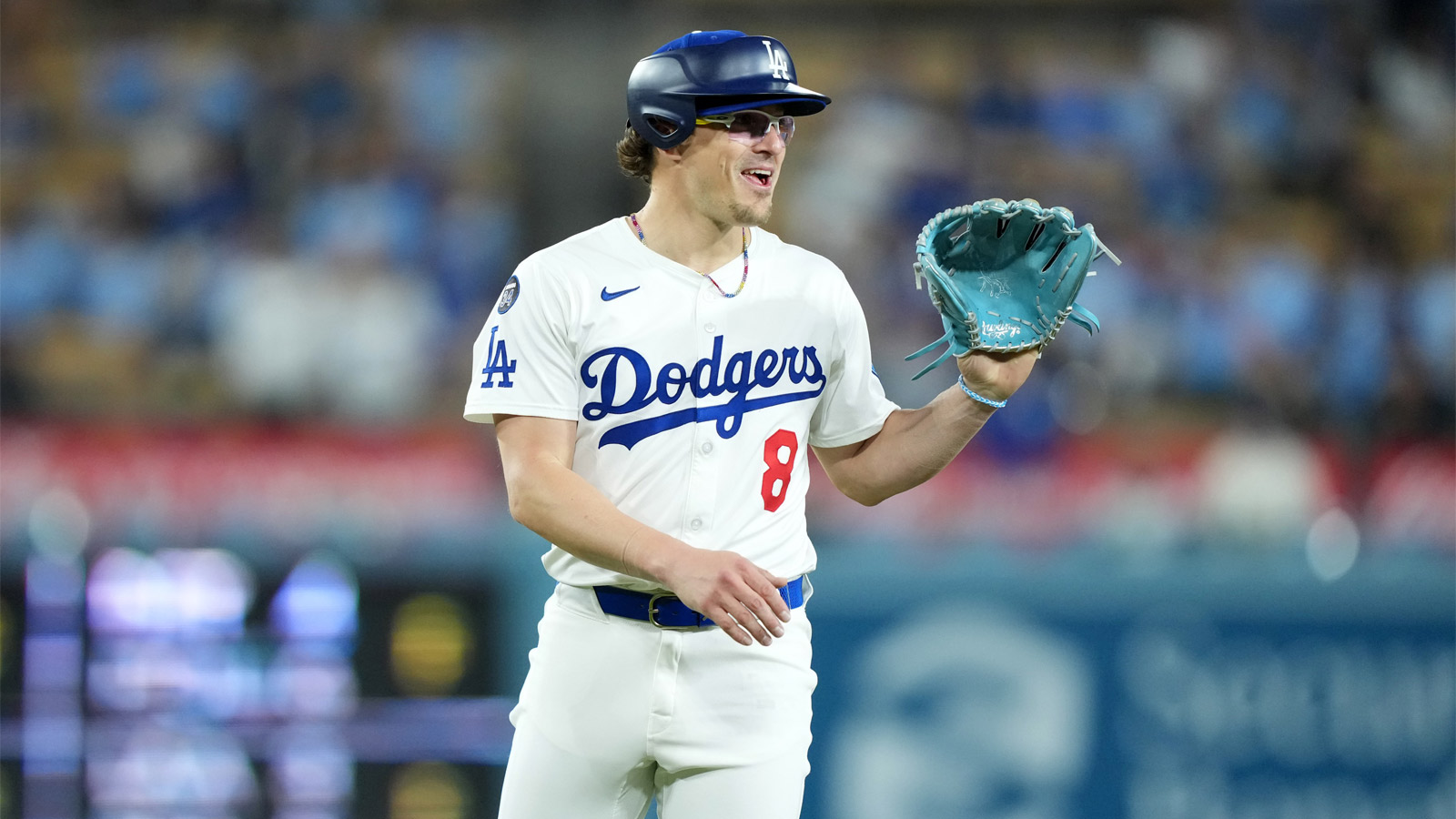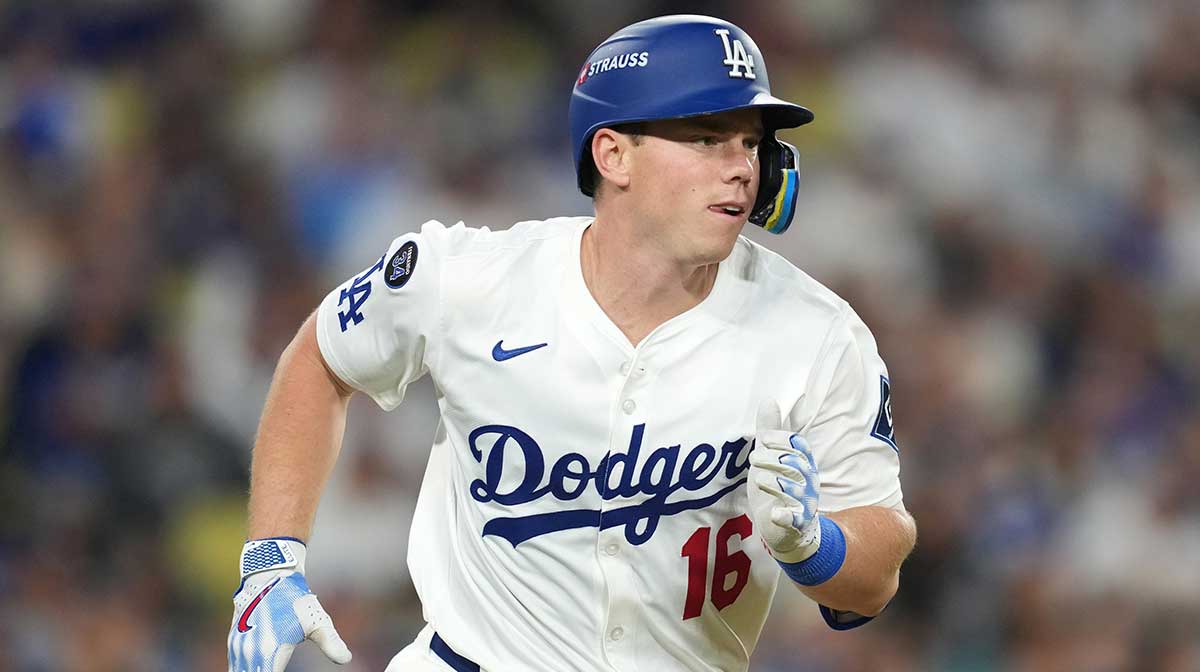The pitching matchup in Game 1 of the World Series is now set. Jack Flaherty will get the ball for the Los Angeles Dodgers, going up against Gerrit Cole of the New York Yankees on Friday night at Dodger Stadium.
On the surface, it's the obvious move for Dave Roberts and the Dodgers. A rash of injuries to their starting rotation has left Flaherty as the team's most established and consistent starter. Flaherty, a deadline acquisition from the Detroit Tigers, started 10 games for the Dodgers down the stretch, pitching to a 3.58 ERA with 61 strikeouts in 55.1 innings.
Roberts also announced Tuesday that Yoshinobu Yamamoto will start Game 2. Though he didn't announce anything beyond that, it stands to reason that Walker Buehler would then follow in Game 3 at Yankee Stadium, with the Dodgers going with a bullpen game in Game 4.
The MLB Network crew broke down the decision, which isn't as clear-cut as fans might think. Host Greg Amsinger pointed out how Flaherty's fastball velocity has dipped in the postseason. After averaging 93.6 mph in his first start in Game 2 of the NLDS, his velocity dipped to 92.6 in Game 1 of the NLCS. In Game 4, his four-seamer dropped to 91.4 mph.
#MLBTonight reacts to the news of Jack Flaherty being named Los Angeles' starter for Game 1 of the #WorldSeries. pic.twitter.com/ATe4xdR2AM
— MLB Network (@MLBNetwork) October 22, 2024
Flaherty's drop in velocity didn't hurt him in Game 1, where he pitched seven shutout innings. It came back to bite him in Game 4, however, when he allowed the New York Mets to score eight runs in three innings of work.
The Yoshinobu Yamamoto vs. Jack Flaherty Game 1 debate for the Dodgers
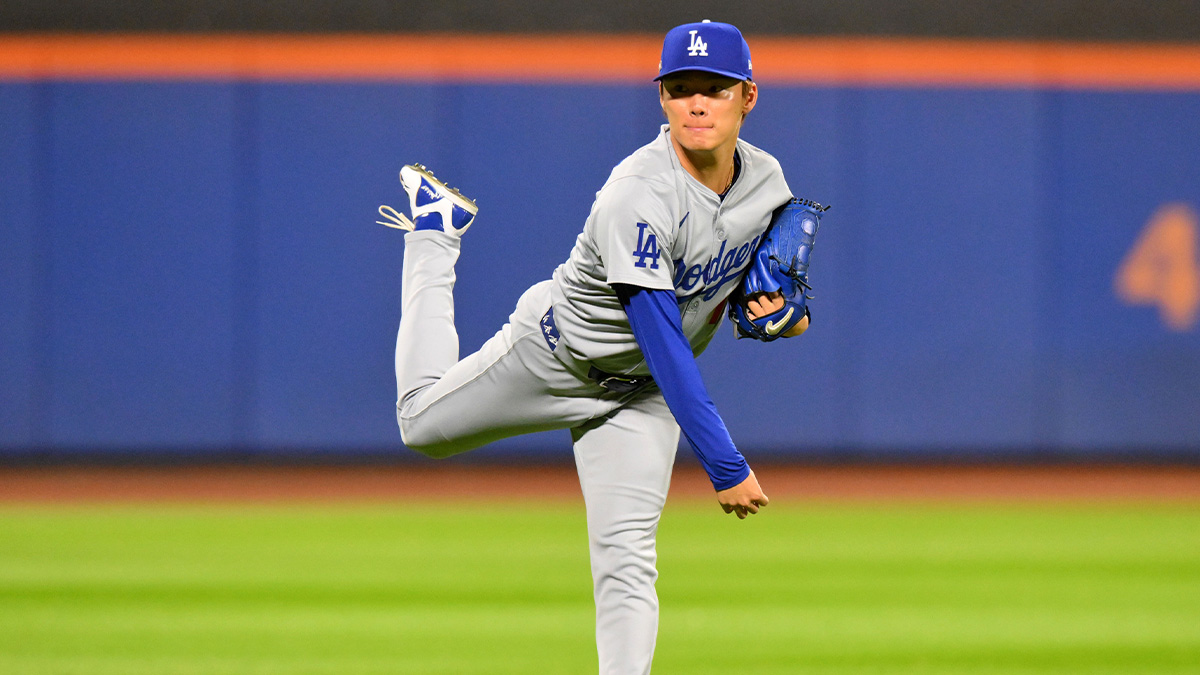
Yoshinobu Yamamoto was the only other logical option for the Game 1 start, but MLB Network explained why that would have been a risk.
Chris Young believes the Dodgers made the right call because Yamamoto needs five full days of rest between starts. That has been the plan for the rookie pitcher all along. Coming from Japan, where he was used to an extra day between starts, and coming back from an injury that sidelined him for two months, the Dodgers are being careful with their pitcher that they signed to a 12-year deal in the offseason.
“Because he needs five full days and he’s pitching on the sixth day, you can’t have him go Game 1,” Young said. “If he goes Game 1, Flaherty goes Game 2, you have an off day, Buehler, bullpen game, boom, now that next game, either Flaherty has to go on short rest or Yamamoto has to go on his version of short rest.”
Mike Lowell saw it differently, thinking it's more important for Yamamoto to set the tone as the pitcher with the best stuff on the staff.
“I was very concerned with [Flaherty's] last start. For me, I’d rather throw Yamamoto Game 1 because I want my guy with the best stuff,” he said. “And if I’m going with a bullpen game in Game 4, I think Yamamoto is going to have a shorter leash than Flaherty if they both pitch to their capabilities, so it gives the bullpen a little extra day.”
Lowell also conceded that it depends on how badly Yamamoto needs that extra day of rest.
“However I don't have the pulse of the Dodgers’ dugout and if Yamamoto is significantly inferior on four days rest as opposed to five, then I think it’s a no-brainer,” he said.

